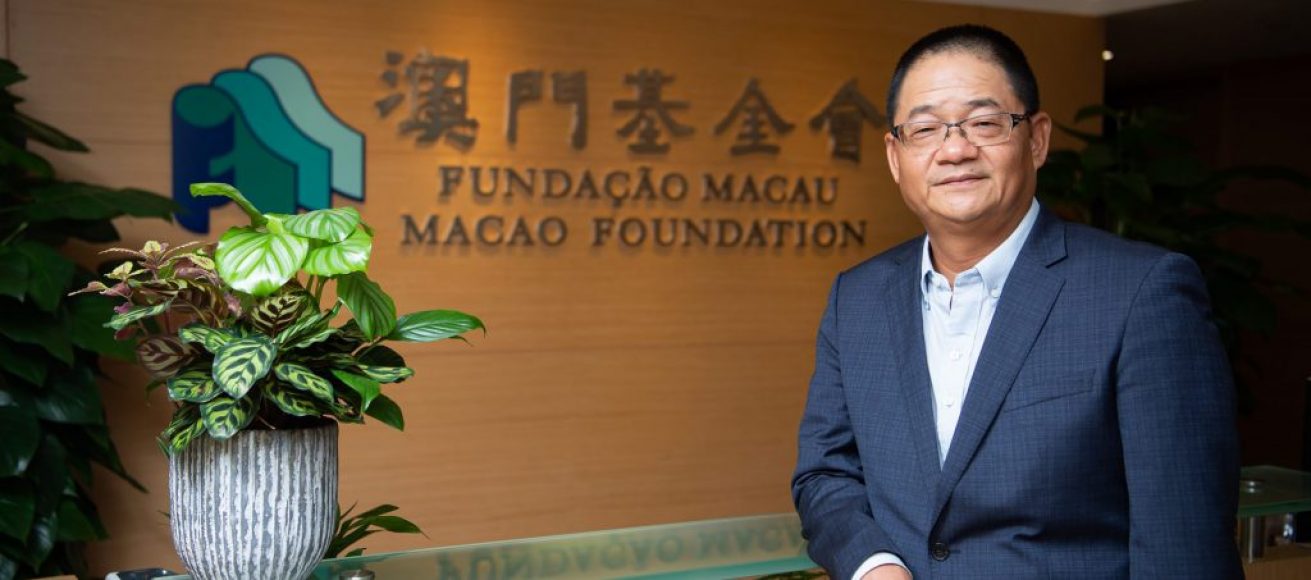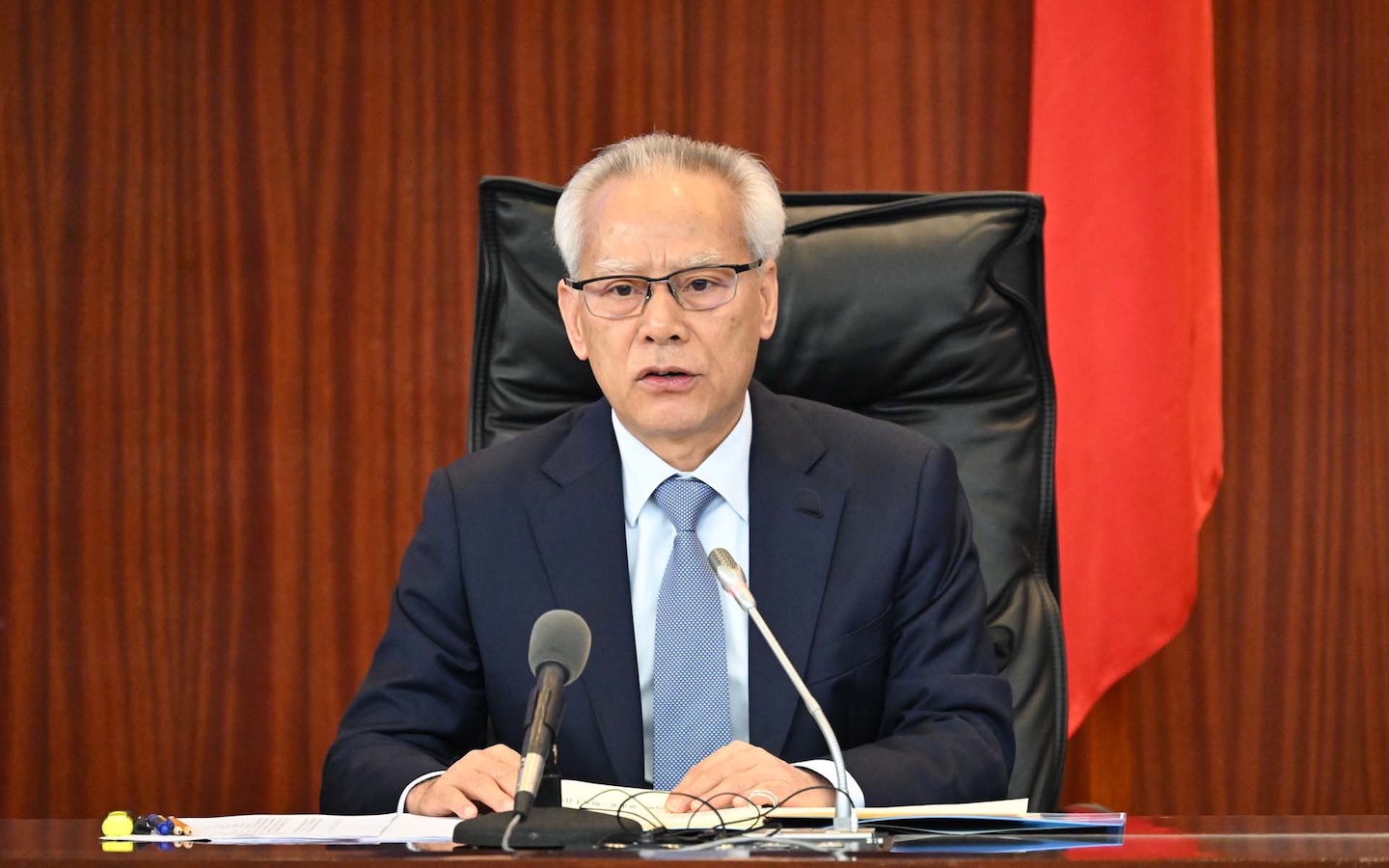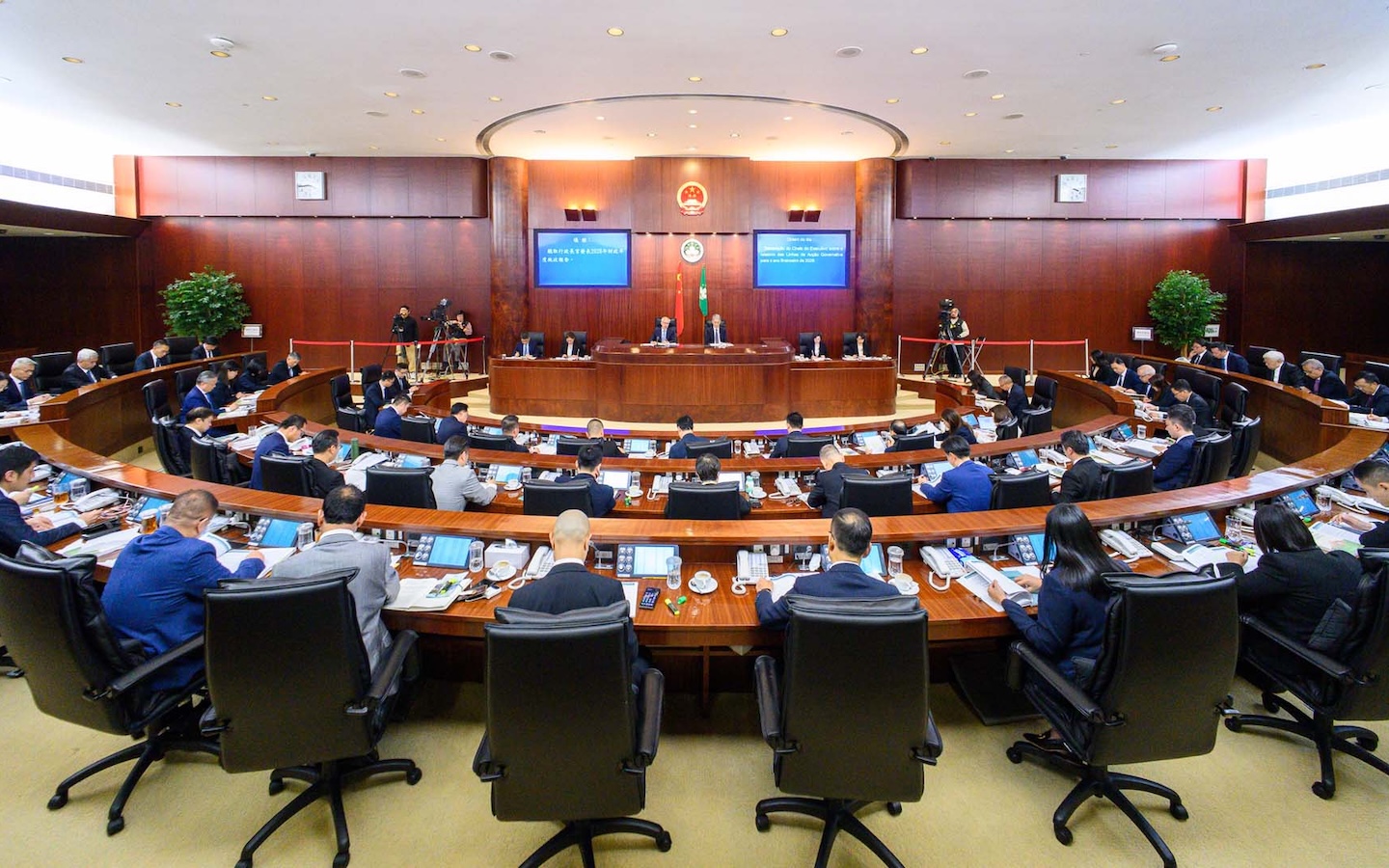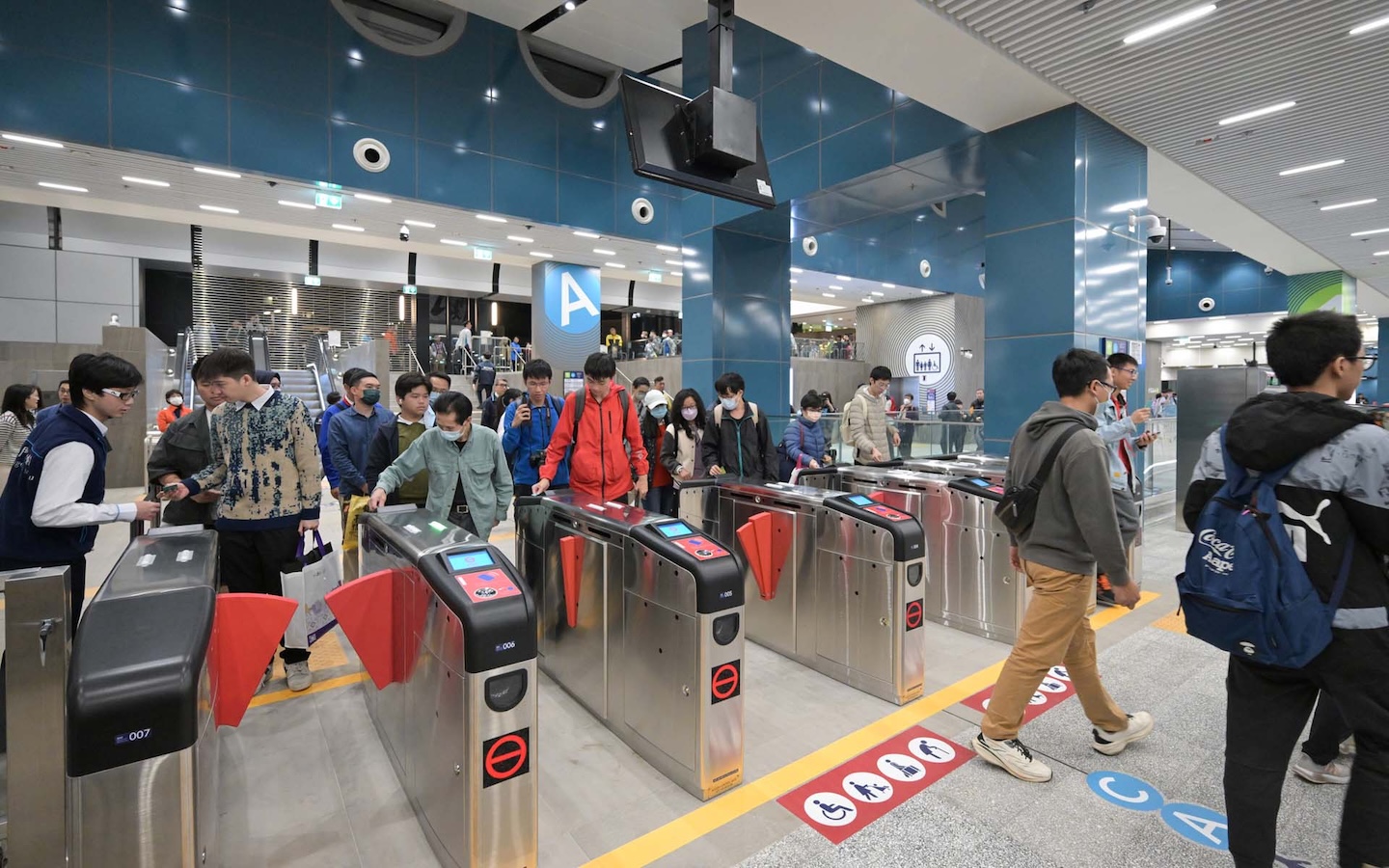The ‘Lingnan culture’ is characterised by its openness and connectivity – and it’s this culture that should bring all 11 cities of the Greater Bay Area closer together under one ‘cultural circle’. President of the Macao Foundation, Wu Zhilliang, tells us what this means.
Last month, Macao hosted the International Forum on the ‘Culture Mission of the Guangdong-Hong Kong-Macao Greater Bay Area’. The forum lasted two days and saw more than 400 guests and scholars participate. During its opening ceremony, Chief Executive Chui Sai On said that ‘a shared cultural identity was an important common denominator to address challenges’ that are associated with the ‘one country, two systems, three separate customs territories’ background. He added that this is ‘in order to ensure the sustainable development of the Greater Bay Area’. The CE also emphasised that the cities in the GBA region all belong to the cultural circle of ‘Lingnan’.
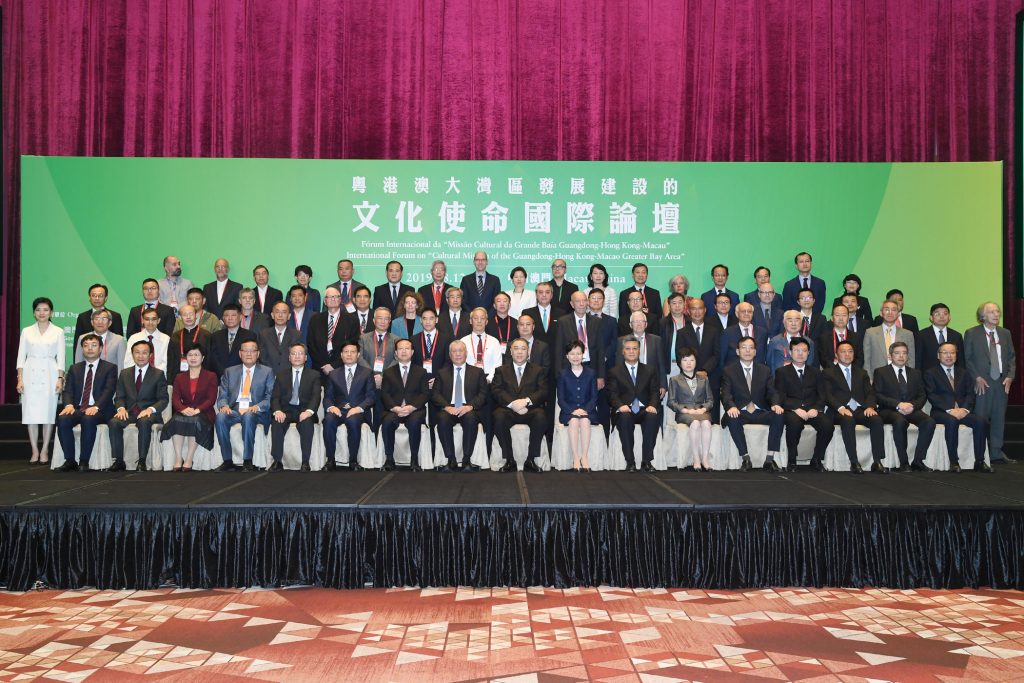
We have all heard of ‘Lingnan culture’ – but what does it actually entail? What are the tenets of this culture and how does it connect with Macao and the GBA at large? We sit down with the President of the Macao Foundation, Wu Zhilliang, one of Macao’s best researchers and historians, to find out more.
Can you briefly explain what Lingnan culture is?
We all know that Lingnan culture originated from the Zhongyuan culture which spread not only to Guangdong but also to the Guangxi and Jiangxi provinces. Guangdong is a coastal province which meant more exposure to travellers which, in turn, led to a higher degree of openness. Many people in Guangdong and Fujian also went to Southern Asia for trading at that time and were exposed to foreign cultures, which further influenced the Lingnan culture. Its openness and great tolerance shaped its dynamism for social and economic development.
I think what makes Lingnan culture distinct from others is the way it uses Western culture as a reference. In Hong Kong and Macao, we are always engaged with Western cultures, where we are exposed to new ideas, philosophies and technologies. In that way, we are able to learn about our pros and cons and make up for our shortfalls. We are able to know when something we deem as advanced is actually trailing behind and we have a clearer picture of the world by having this reference point which makes us more confident when we work too. That’s why Guangdong people are willing to change and innovate. There is a notable difference when we cooperate with other provinces in Mainland China – provinces more inland tend to need more explanations whereas coastal cities like Xiamen and Shanghai are easier to communicate with.
Are events like the Guangdong-Hong Kong-Macao Greater Bay Area (GBA) Literary Week, which was held in Guangzhou in July, part of efforts to merge the GBA cultures together?
That’s exactly right. We had the first conference in Shenzhen in 2017 and the second in 2018. I went for literature because two years ago I proposed to the Guangdong Writers’ Association that ‘literature comes first’. The reason I proposed literature is because I think literature, like other forms of arts, is more direct and emotional. Instead of going for the economy and technology industries which are rather competitive, literature could be a better starting point because it is less competitive. After this Guangzhou event, we are planning one in Macao as well. From an economic standpoint, the gaming and tourism industries are Macao’s primary strengths and it is impossible to cooperate with other cities in the GBA in relation to gaming. Of course, we can cooperate on the level of tourism – but as a history student, to me, our culture is the most valuable. That’s why we want to bring this to Macao.
If we go back hundreds of years, Macao was one of the first cities in China to open up to the world and even then it protected traditional Chinese culture from wars and revolutions and it never lost its cultural essence. The Portuguese also did not restrict the development and practice of Chinese culture. We can easily see Macao’s harmonious society based on our culture and traditions. We are in the same boat and we help each other. This is not a slogan but a reflection of reality. We do not fight because the boat would sink. We also kept the openness of the Lingnan culture and didn’t reject Western cultures. We lived peacefully with not only Portuguese but also the Japanese and many others.
I think Guangdong, Hong Kong and Macao are like a family. As the saying goes: ‘Guangzhou city, Hong Kong town, Macao street’ [廣州城、香港地、澳門街]. The centre is in Guangzhou, Hong Kong was only developed around 50 years ago making it a small place and Macao was developed even later making it an even smaller place. Although Hong Kong and Macao were colonies for many years and were cut off from Mainland China, they are now under the ‘one country, two systems’ and for the past few decades we have mutually experienced reform and the opening-up policy.
In the beginning, Shenzhen was mostly developed by Hong Kong. Today, we wouldn’t be able to understand each other unless we had gone through that experience of working together. We eat, we drink and we do business together. Most of the time, Guangzhou and Hong Kong act as competitors whether in economy or technology. Macao has no power to compete with anyone and so we can serve as peacemakers instead.
Do you think it’s the Portuguese and British historical past that shaped the uniqueness of Macao and HK respectively?
We all know that the SAR’s values are our uniqueness. In Macao, we have two values: the first is the protection of the traditional Chinese culture and the second is the peaceful integration of Chinese and Western cultures and religions, which is a rarity in our world. If we [who are based in Macao] tell a Chinese story, compared to someone from Nanjing, we are able to tell the story in a more understandable and effective way to outsiders even though we don’t speak fluent Portuguese or Mandarin. This is why Macao can play the role of an intermediary for the further development of China in the future. These are the two cultural advantages we possess. Another one is the large social community of Macao.
We are connected, we know our neighbours and we have good relationships with each other. Social practices and governance are very important. One of Macao’s advantages is that our culture still contains Portuguese features. For example, we are able to handle things without the help of the government. When things need to be dealt with, our associations and industries unite and tackle the issues. These are the values that we should be promoting to other cities in the GBA. Two years ago when Typhoon Hato hit Macao, I saw numerous associations come out to help the community. I was so touched by the scene. You can find the spirit of cooperation in Macao. It is cooperation that helped Macao survive our history. It cannot be taken for granted as not many cities can survive for over 500 years – they are all historical heritage now.
Macao was given the role of being a platform for the Portuguese-speaking countries because of its Portuguese history and relations. Do you think this is the ideal opportunity to promote Lingnan culture in the PSC?
I think we should promote not only Lingnan culture but also Chinese culture in general to the Portuguese-speaking countries. Macao mainly functions as a cooperation platform for trade and economy. But its advantages are also its cultural and historical connections. A lot of us have families in Africa, Southeast Asia and Brazil and that creates an emotional connection. We should also start bringing the cultures of the Portuguese-speaking countries to Mainland China to understand each other better. Over past years, Macao has focused on developing its economy and trade, but I think we should develop the cultural, educational and technologies industries to achieve all-round successful concord, which will make Macao more valuable. It is not an advantage if we do not make good use of it, so I think we should put more efforts in this direction.
Will the Macao Foundation increase its efforts in promoting the Lingnan culture?
Yes, we will. However, our efforts are not under the umbrella of the Lingnan culture – they are under the GBA initiative. For example, we are the only organisation that offers funds to African students and offers scholarships to encourage students in Macao and Guangdong to pursue different levels of academic studies in Portuguese-speaking countries. It is a pity that we only received three applications when we are offering 10 – although we understand that Macao has better living conditions than some of these places. We really want to invest in more resources that can push Macao’s society forward and that’s the aim of the Macao Foundation: to provide financial aid to projects we deem are essential to society.
Does the Macao Foundation have any projects or cooperation agreements with other organisations in the GBA?
We are connected but we aren’t necessarily working with them because we have different objectives and the Macao Foundation is a special case. Most of the others focus on one specific area while we tackle them all. At the moment, we have connections with the government and non-governmental organisations and focus on areas like education, social sciences, charity and culture.
Is the Cantonese language – one of the characteristics of the Lingnan culture – an element you want to promote?
Sure. We use Cantonese as our common language even though we have Hakka and Teochew dialects and people who come from different parts of the country learn Cantonese when they move here. We also have more or less the same lifestyle. Cultures in the GBA are unified and under one ‘cultural circle’. It is not only about accessing different cities within an hour but without a common cultural identity it is meaningless. That’s why I keep stressing that it is not economy but culture coming in the first place. The bond and connection of culture and values is already the most important. We often use Mandarin in Macao but Cantonese is still in common use, so I don’t think language in that sense is of critical importance – although I do think Cantonese has its element of openness.
Do you think young people in Macao should look to the GBA as a place to develop their professional careers?
I think the main issue of young people in Macao is that they don’t have to worry about employment. Life is too stable for them to get out of their comfort zone. Working and partnering with the GBA will give them wider perspectives and knowledge so they aren’t limited to such a small city – the GBA at the end of the day is like a family gathering. Young people in Macao should understand that we cannot protect our labour market forever and [that they should] not take everything for granted and blame others for grabbing ‘our’ employment chances. This is not right because competition is good for a society.
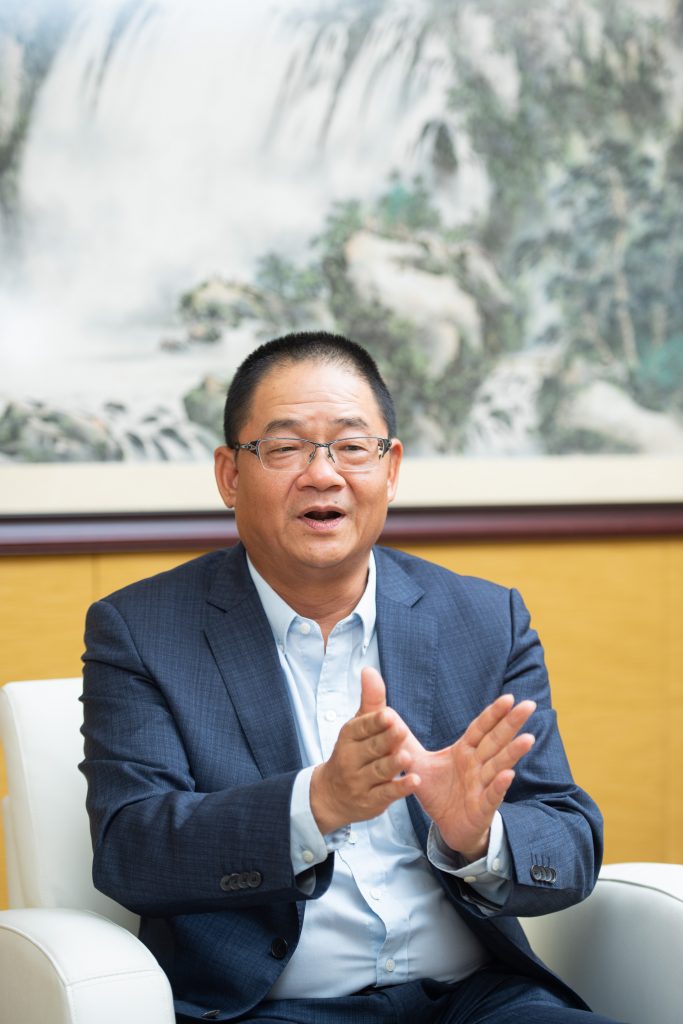
We have to open our society and city up and that’s what I have been emphasising to the younger generation. You cannot accuse people for coming to your city and worsening it – we have to change our mindsets because at this pace, our society won’t work in the long term.
It is just like putting a shark in our waters so we can swim faster. We cannot ask cities to open up their doors but then close ours – this is marginalising us. We are in a lucky position that the gaming industry feeds us all. You cannot find any other cities with low tax rates and a good welfare system at the same time.
It is a fact that our city is crowded but we cannot close those doors because that’s where our money comes from. We should create a pluralistic economy that offers young people more choices. We have a lot of brilliant young students who choose to leave Macao for a better and more compatible career path and that’s why we need to create opportunities to bring them back. We should arm ourselves when we are stable and prosperous and not when it’s too late. Just like we should do body checks when we are healthy and not when we are sick.
What’s your definition of ‘Macao people’?
I don’t think we should define it narrowly by blood relations. I think people who are working here on a long term basis should be considered as ‘Macao people’. We are an immigrant city – one of different races, religions and nations. The people of Macao are mainly made up of Chinese, for sure, but the Chinese we are talking about includes all the people from the north to the south of China. This is why we should maintain cultural diversity. Shenzhen is a successful example. You can’t deny that such a big city has adapted to the world with foresight. We cannot follow their path exactly but we should learn from them. Use our advantages and be prepared for competition. We shouldn’t confine ourselves to stability – this is not the spirit of the Lingnan culture. It is short-sighted to give priority to local labourers to limit competition. It’s dangerous to confine ourselves because some day we will lose everything.
What advice do you want to give to the young generation in Macao?
Young people can stay in their comfort zone but must have wider horizons – see things from a global perspective and love our country. The world is fast-changing and this is the only way. Macao can’t survive without China. We have to increase our confidence and prepare for competition. Things will come unpredictably and it is only a matter of time. We should be prepared to face the world. I’m afraid that people have lost their competitiveness when they are only in their 30s or 40s. If we don’t seize our time to prepare for the fight, we are going to lose when the door is wide open.
